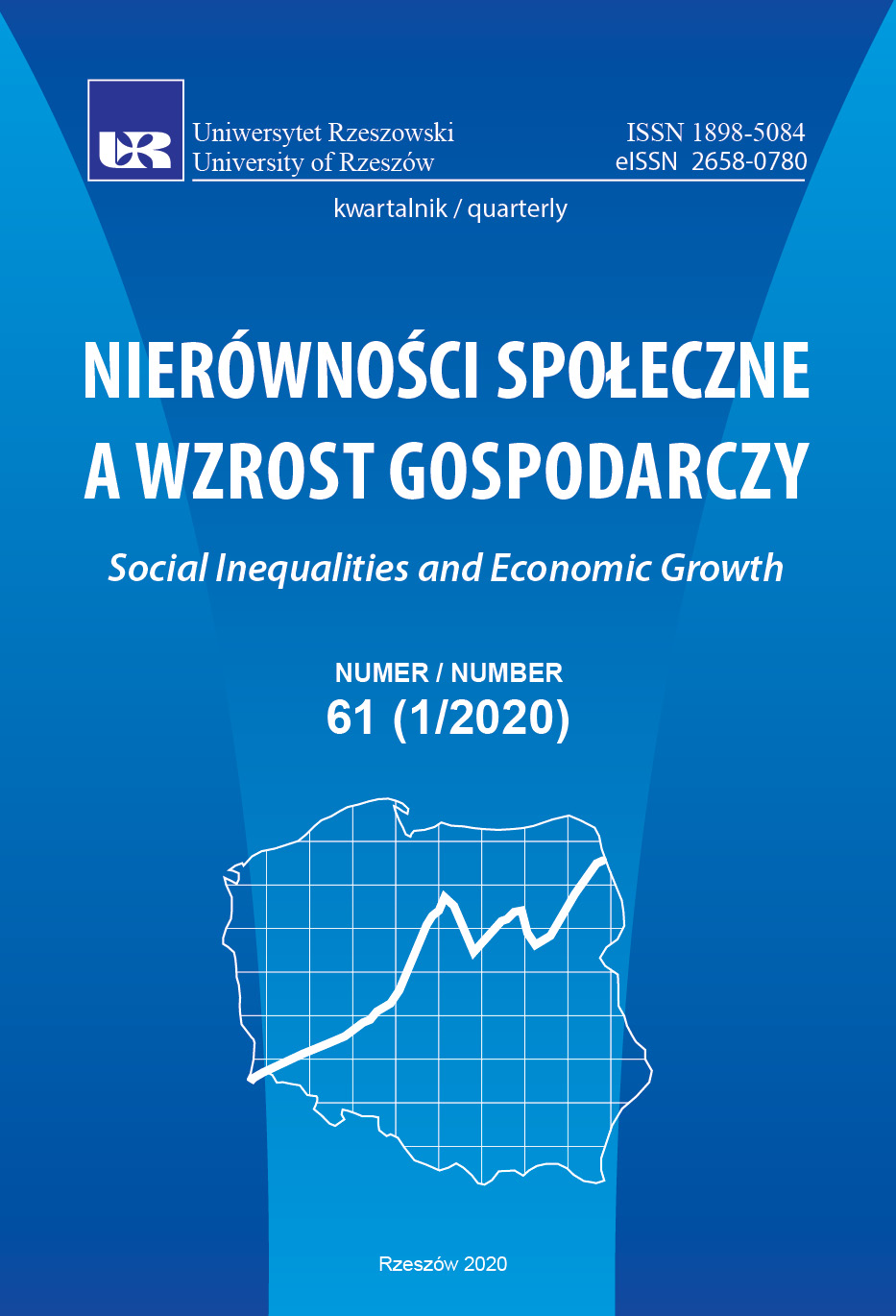Security as a public welfare in the risk society
DOI:
https://doi.org/10.15584/nsawg.2020.1.8Keywords:
economic security, risk society, threatsAbstract
This article is of a general and theoretical character and explores the problem of too high risk in the economy and, more widely, in the social system as a result of excessive deregulation of financial markets. As a hypothesis it has been assumed that the contemporary economic and political system should be subjected to regulation and social control in a much greater extent. It conditions the risk limitation and, at the same time, increases the feeling of security for citizens, who require greater subjectivity in their relations with economic and political power. Over the last years, security has become a subject of interest for researchers in various disciplines, which results from the growing uncertainty and the occurrence of new threats to the existence and development of individuals and societies. These threats should be researched in a transdisciplinary way. The uncertainty of the future and difficulties in forecasts require a holistic methodology to be applied to security research. What is also interesting is that the greater part of the threats is generated by the faulty functioning of the finance system. Reforms, which have been carried out in a spirit of neoliberalism over recent decades, have led to an imbalance in the proportions between the real production sphere and the financial world. Changes in the economy have contributed to a stagnation in work income against a background of income derived from the financial market. Neoliberalism has generated risks connected to economic and political inequalities and has weakened the role of the states as the regulators of economic processes. In this context, security is a value being sought contemporarily. However, its assurance requires changes in the spirit of the theories of the post-Keynesian school – restoration of the primary role of full employment and the value of work in economic, social and ethical terms.
Downloads
Downloads
Published
How to Cite
Issue
Section
License
Copyright (c) 2020 University of Rzeszow

This work is licensed under a Creative Commons Attribution-ShareAlike 4.0 International License.


